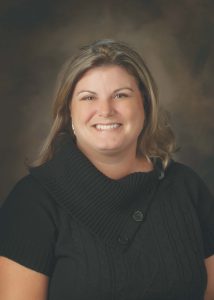By Greg Ellison
Work group sets schedule, objectives and how it will work with other entities
(Dec. 17, 2020) The recently formed Ocean Pines Bylaws and Resolutions work group set about establishing objectives and schedules during an organizational meeting held virtually on Dec. 10.
Jenny Cropper Rines, Ocean Pines Communication Committee Chairperson, said during the recent annual Executive Council meeting for Advisory Committees, some consideration was given to making a “Master Calendar” to assure annual bylaw requirements are followed.
“We thought a calendar of when these happen would be useful to committee chairs and new boards,” she said.
Also on the work group is OPA Director Doug Parks who admitted to having an interest as a former Bylaws Committee chairman.
Parks said the work group would benefit from a wealth of “institutional knowledge” provided by two-time Bylaws Committee Chairman Jim Trummel, who had held the seat prior to Parks and subsequently reassumed the role.
“He’s been a guiding force for us for quite a while with regard to bylaws resolutions,” he said.
Plotting long-term time frames was the initial point of consideration, with Rines proposing the annual homeowners meeting in 2021 as an ideal target.
“Is that too long?” she said.
OPA Director Camilla Rogers said the process should be thorough and not rushed.

Jenny Cropper Rines
“We need a proper sense of plan,” she said. “It hasn’t been done in such a long time, it’s going to warrant a pretty close review.”
Parks was also less concerned with target dates than procedure.
“We need to look at the depth of bylaws and any changes we want to propose,” he said. “Be advised if any of these changes will require a referendum, then we’ve got that in front of us as well.”
Trummel, who joined the Bylaws Committee in summer 2008, confirmed that eventuality.
“Our current bylaws were approved at [the 2008] annual meeting and there was a public hearing about amendments to bylaws,” he said.
Trummel said whether altering language to a single provision or a comprehensive bylaws amendment such as occurred in 2008, a referendum would be necessary.
“It’s not how many changes or amendments are made,” he said. “It’s the fact that there’s going to be an amendment that’s made and that will require a referendum.”
Trummel also raised the possibility of a related public hearing and associated bylaw mandates.
“If a change is proposed through a member petition, there will be a published hearing required,” he said.
By contrast, OPA bylaws do not specify the same pubic hearing requirement for changes proposed by the board.
“Even if it isn’t in the current bylaws, I think we would be remiss if we didn’t have a public hearing,” he said.
In response to Parks asking what role the Bylaws Committee should play in the process of reviewing documents for updates, Trummel said the group should be involved but not at the expense of other advisory committees.
“We do need to make sure we get a broad representation,” he said. “I didn’t want the Resolutions and Bylaws Committee to be the sole actor in developing what amendments to the bylaws may be appropriate.”
Trummel also backed Parks’ suggestion that the work group filter any potential revisions through the Bylaws Committee for presentation to the board.
Parks said another initial planning matter would be which bylaws sections to review for possible revisions.
“We need feedback on how to approach it,” he said.
Trummel said the entire slate should be examined.
“To be thorough about it, we need to make sure we cover the entire bylaws,” he said.
Rogers inquired about top priorities among work group members.
“For me it’s the election committee and the report,” she said. “There’s a lot of confusion about that.”
Trummel said issues of importance include defining what constitutes eligibility for association members to vote in board elections and membership petitions.
“Unfortunately, there is an issue with how many votes must be accounted for on a valid petition,” he said.
Parks said current bylaw language requires petitions to contain signatures of at least 10 percent of eligible voters but how to calculate which members qualify needs greater clarity.
“We clearly have to clear that one up,” he said.
Parks also raised the importance of creating more stringent guidelines for board motions passed via email.
“We have been inconsistent on getting a vote on a motion by electronic means without having a meeting,” he said.
Parks asked if the work group should also cross-reference association resolutions with bylaws to confirm consistency.
Trummel said resolutions are not permitted to violate any terms included in bylaw language.
“It’s the resolutions that must be consistent with the bylaws.”
Trummel said although the Bylaws Committee has ceased regular meetings during the covid-19 pandemic, the group is mandated to review the adequacy of resolutions periodically.
“It’s not in motion right now, obviously,” he said. “If anything resolutions should be a down the line secondary consideration.”
The work group agreed to use the homeowners annual meeting as a soft target date to complete recommendations and decided to begin the process by reviewing bylaws sections 1-3 for an in -depth discussion at its next meeting tentatively set for mid-January.
